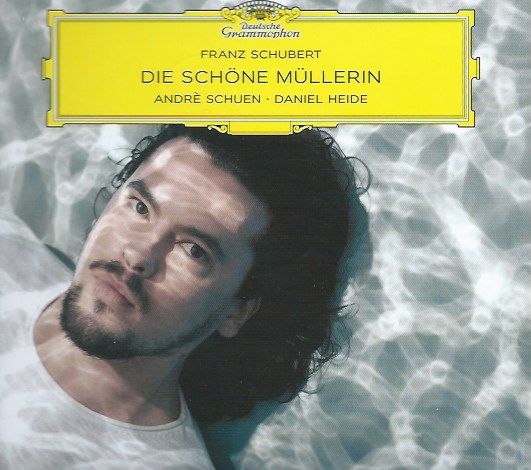The Miller's Daughter: Andrè Schuen in Schubert

Previously on Classical Explorer, we looked at a fabulous Schubert recital by Klaudia Tandl and Niall Kinsella, who were joined by Gabriele Jacoby in Schubert's Women.
Here, though, we begin our exploration of the song-cycles: Die schöne Müllerin, Winterreise and Schwanengesang, occasioned by the release on Deutsche Grammophon of a performance of Müllerin by baritone Andrè Schuen and piano Daniel Heide. If you'd like to hear them introduce the work, here's just that:
As they point out, Müllerin is very different from Winterreise in presenting a linear narrative. And what a narrative: a journey from hope, the young man striding out in "Das Wandern" (Wandering) to his "watery grave" in the final "Des Baches Wiegenlied" (The Stream's Lullaby). In other words, from here:
... to here:
The tracking of the "relationship" between the young man and the miller's daughter is beautifully done by Schubert; and by Schuen and Heide. It took me a few listenings to embrace their approach: Schuen is lighter than, say, Fischer-Dieskau, yet the cumulative effect is just as devastating.
Schuen is joined by Daniel Heide, clearly a most attuned pianist, both to his singer and to Schubert's language; he tackles the trickier moments ("Ungeduld," perhaps) in his stride. Heide's light touch in "Mit dem grünen Lautenbande" (With the little green ribbon) is utter delight. Together, the spell they create in "Der Neugierige," the sixth song, particularly at the words "O Bächlein meine Liebe, wie bist du heut' so stumm?" (O stream of my love, why are you so silent today?) is remarkable:
More, the contrasts the pair find at the cycle's midpoint is remarkable. The quiet intimacy of "Tränenregen" sits perfectly against the ecstatic - but here somewhat frenzied - elation of "Mein!" (Mine!). Just listen to the slightly disjunct phrasing of "Die geliebte Müllerin ist" before the ejactulation (surely not the right word, and yet the perfect one) of the word "mein". Together: "The beloved mill-girl is mine":
The decision to move so swiftly from "Der Jäger" (No. 14, The Hunter) to "Eifersucht und Stolz" (Jealousy and Pride) is massively effective; pure drama in Lied form, it is prolonged by the perfectly judged accents in the latter. Taking "Die liebe Farbe" (No. 16, The favourite colour) so slowly is daring, but the pair carry it off beautifully, freezing time in the process. Schuen's breath control is remarkable in this. It is clear we are moving towards extreme emotional states:
That sense of daring continues through a held-breath "Trockne Blumen" (Faded Flowers) and "Der Müller und der Bach"; we are universes away from the happy-go-lucky "Das Wandern," and we finally land on that final "Des Baches Wiegenlied," as devastating in its way as "Der Leiermann" as the final song of Winterreise.
Andrè Schuen also takes the role of Figaro in Harnoncourt's recently issued Theater an der Wien Mozart Figaro which, despite the hybrid nature of the "staging" (static sets throughout, costumes but most of the singers use music on stands) offers a fine example of his dramatic capabilities.
